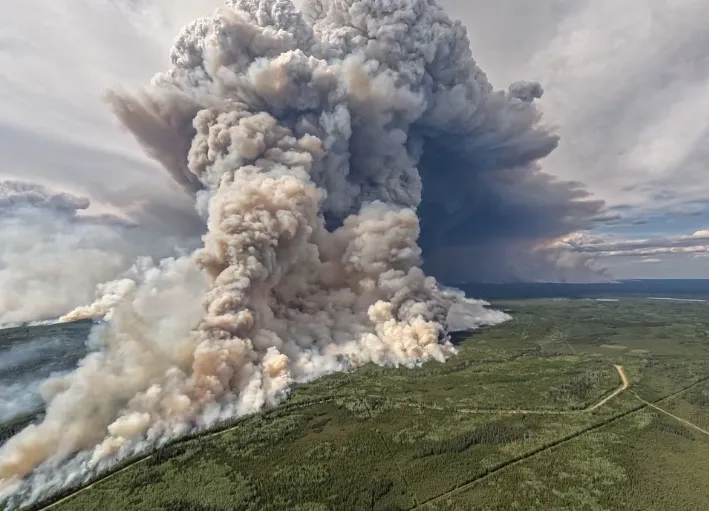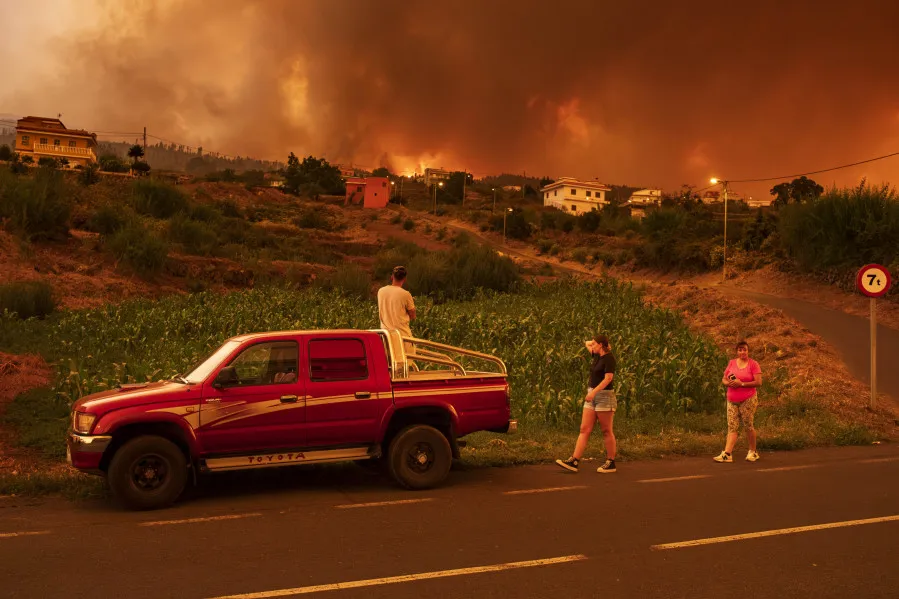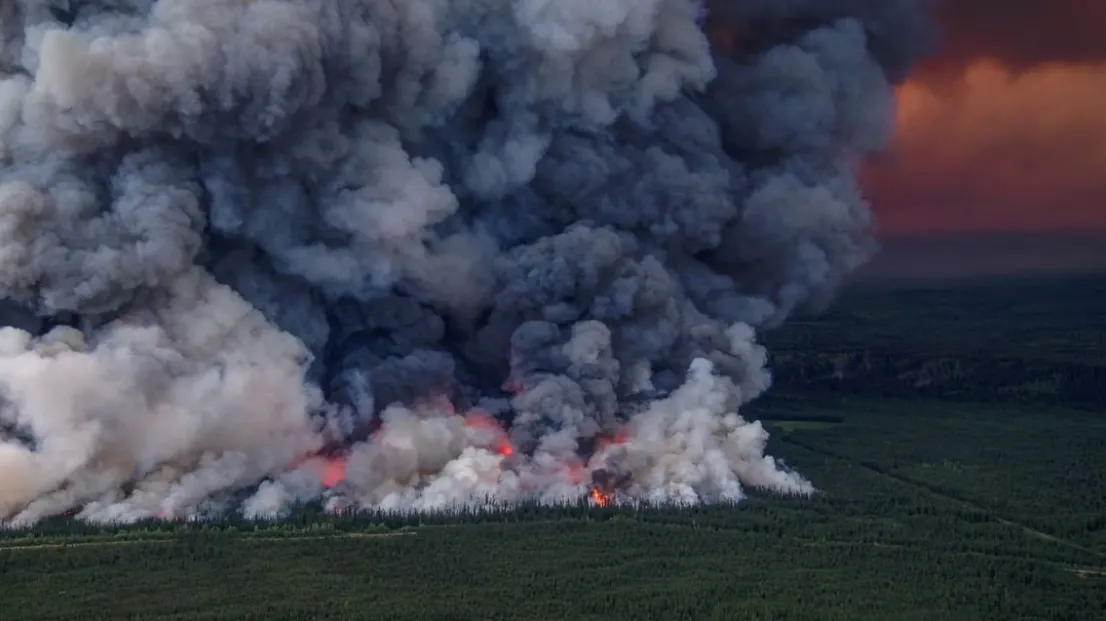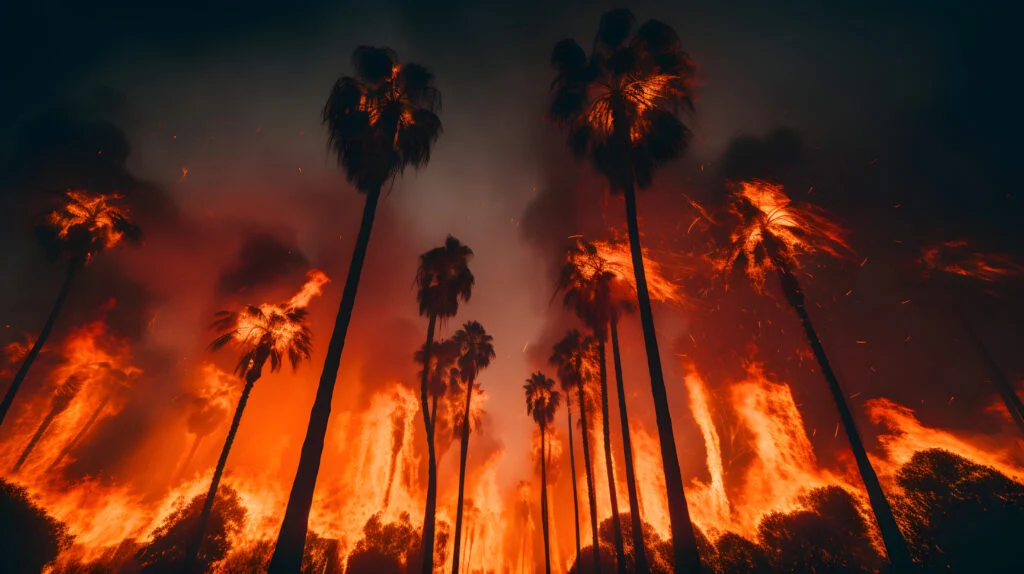The current widespread wildfires around the world are caused by a combination of factors, including:
- Climate change: Climate change is making the Earth’s atmosphere warmer and drier, which creates ideal conditions for wildfires to start and spread.
- Human activity: Human activity, such as deforestation, can also contribute to wildfires. For example, the clearing of trees for agricultural or development purposes can leave behind dry vegetation that is more likely to catch fire.
- Lightning: Lightning is a natural cause of wildfires, but it is often exacerbated by climate change.
- Drought: Drought can dry out vegetation and make it more flammable.
- Wind: Strong winds can fan the flames of a wildfire and make it difficult to control.
The following are some of the countries that are currently experiencing widespread wildfires:
Hawaii
The Hawaii wildfires are the deadliest and most destructive wildfires in the state’s history. The fires started on August 8, 2023, on the island of Maui and have since burned over 100,000 acres of land. The fires have destroyed over 2,000 structures, including homes, businesses, and historic buildings. The death toll has reached 114, and over 1,000 people are still missing.
The cause of the fires is still under investigation, but experts believe that they were caused by a combination of factors, including high winds, dry vegetation, and downed power lines. The fires have been made worse by climate change, which has made the Earth’s atmosphere warmer and drier, creating ideal conditions for wildfires to start and spread.
The wildfires have caused a major humanitarian crisis in Hawaii. Thousands of people have been displaced from their homes, and many are still without power or water. The Red Cross and other relief organizations are working to provide food, shelter, and other assistance to those affected by the fires.
The fight against the Hawaii wildfires is still ongoing. Firefighters are working to contain the fires, but they are facing difficult conditions. The winds are still high, and the vegetation is very dry. The fires are expected to continue burning for several more days.
Canada

The 2023 Canadian wildfires are the worst in the country’s recorded history. The fires have burned over 33.8 million acres of land, destroying over 1,400 homes and displacing over 100,000 people. The fires have been caused by a combination of factors, including climate change, drought, and human activity.
The fires have been particularly devastating in British Columbia, where over 20,000 people have been forced to evacuate their homes. The fires have also caused widespread air pollution, with smoke from the fires reaching as far as the northeastern United States.
The Canadian government has deployed the military to help fight the fires and has declared a national state of emergency. The fires are expected to continue burning for several more weeks.
Spain

There is a wildfire currently ongoing in Spain’s Canary Islands, specifically on the island of Tenerife. The fire started on Wednesday, August 17, 2023, in a mountainous national park around the Mount Teide volcano, Spain’s highest peak. The fire has burned over 22,000 hectares (54,000 acres) of land and forced the evacuation of over 6,000 people.
The cause of the fire is still under investigation, but it is believed to have been started by a lightning strike. The fire is being made worse by hot and dry weather conditions, as well as strong winds.
Firefighters are working to contain the fire, but they are facing difficult conditions. The fire is located in a mountainous area with steep terrain, and the winds are making it difficult to fight the flames. The fire is expected to continue burning for several more days.
The Spanish government has declared a state of emergency on the island of Tenerife, and the military has been deployed to help fight the fire. The government has also activated a contingency plan to provide assistance to those affected by the fire.
These wildfires are a stark reminder of the dangers of climate change. Climate change is making the Earth’s atmosphere warmer and drier, creating ideal conditions for wildfires to start and spread. We need to take action to reduce greenhouse gas emissions and slow the pace of climate change. We also need to improve our fire management practices to better protect our communities from wildfires.
Here are some things you can do to help prevent wildfires:
- Be careful with fire. Never leave a campfire unattended.
- Dispose of cigarettes properly.
- Mow your lawn regularly to remove dry leaves and debris.
- Report any unattended campfires or suspicious activity to the authorities.
- Stay informed about fire conditions in your area.
If you are in an area that is threatened by a wildfire, evacuate immediately and follow the instructions of the authorities.




